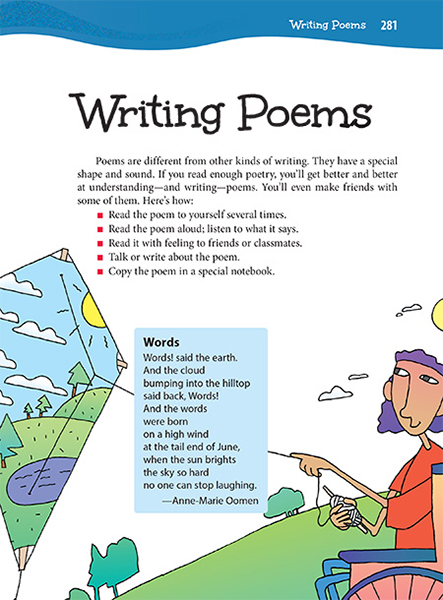Page 281 from

Start-Up Activity
Read aloud the poem on this page. Ask your students to read the poem again to themselves and write down their favorite line from the poem. Have your students share their responses and tell why they like the lines they chose. Then ask questions about the poem as a whole:
- How does the poem make you feel?
- Why does it make you feel that way?
- What does the poem make you think?
- What words make you think this?
Tell students that this chapter helps them corral their own favorite words and put them into a poem that makes people feel and think.
Think About It
“Poems must be heard as well as seen.”
—Bill Brown and Malcolm Glass

Start-Up Activity
Read aloud the poem on this page. Ask your students to read the poem again to themselves and write down their favorite line from the poem. Have your students share their responses and tell why they like the lines they chose. Then ask questions about the poem as a whole:
- How does the poem make you feel?
- Why does it make you feel that way?
- What does the poem make you think?
- What words make you think this?
Tell students that this chapter helps them corral their own favorite words and put them into a poem that makes people feel and think.
Think About It
“Poems must be heard as well as seen.”
—Bill Brown and Malcolm Glass

